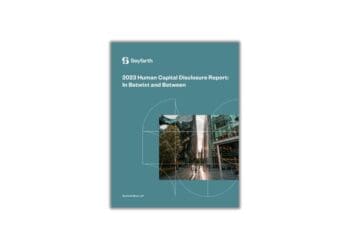Almost all businesses have seen supply chain disruptions over the past year, and new research finds that as a result, many are pulling back on ESG-related initiatives like labor standards and supply chain sustainability.
The research from cloud management provider Ivalua and Sapio Research shows that 90% of businesses have seen their supply chains disrupted by inflationary pressure and about two in three say their efforts to improve supply chain sustainability and eliminate exploitive labor practices have been hampered.
These findings come despite mounting regulatory pressure, including the EU’s new Corporate Sustainability Reporting Directive, a U.S. forced labor act and the SEC’s still-to-come climate disclosure rule, expected to be issued in October.
A few key findings:
- More than half of organizations (57%) have been working with cheaper rather than greener suppliers due to rising costs.
- More than a third (35%) have shifted to local operations in their supply chain to cope with uncertainty, while another 42% plan to do so.
- Companies have responded to rising inflation by ramping up cost-cutting (50%) and operational efficiency (40%).
Regulatory Clarity Is Coming, But Companies Still Need to Thread the Needle on ESG
A handful of ESG-related regulations are in the works or go into effect in 2023 targeting global supply chains. Despite that welcome bit of clarity, companies still must act with dexterity as they seek to meet internal and external demands.
Read moreBusinesses report that in the past 12 months they have been disrupted by the rising cost of energy and fuel (86%) and raw materials (84%). The war in Ukraine is still disrupting European businesses, particularly in France (83%), Italy (82%) and Germany (79%).
Almost half (49%) of procurement leaders agree their organization has been ill-equipped to deal with and react to uncertainty. Over two-thirds of procurement leaders want more responsibility to help manage this uncertainty, but only 37% feel empowered enough by their organization.
The survey of 850 procurement leaders was conducted in July.











